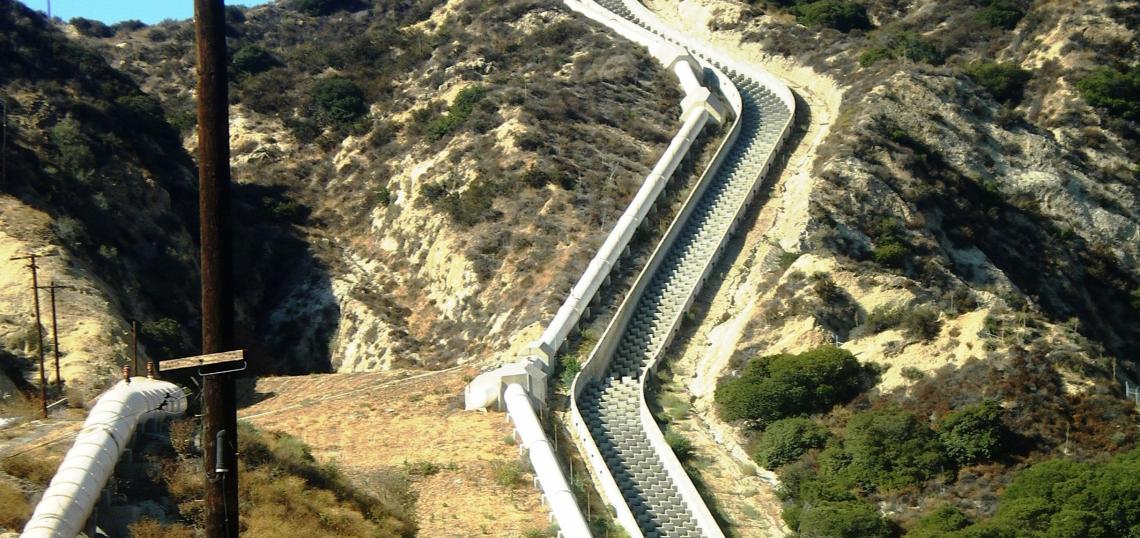Why Los Angeles won't run out of water: The Aqueduct "Second only to the Panama Canal, the Los Angeles Aqueduct was once the most extensive creation of its kind in human history. An unbelievably expensive and lengthy project, its benefits and consequences are still felt today. Other regions went dry to sate Los Angeles’s need for water, causing decades of turmoil in the so-called Water Wars. Without it, the city would have never prospered as it did." (It's History - YouTube)
California’s renter tax credit has remained unchanged for 43 years. It could soon increase "The amount of the subsidy — created to help income-eligible Californians who don’t benefit from the tax breaks given to homeowners — has remained unchanged since 1979, never adjusted for inflation and no match for the relentless rise in rental rates across the state." (LA Times)
A snapshot of new state government efforts to tackle California’s housing crisis "A year after the creation of sweeping laws to increase the construction of duplexes and small apartment buildings, California lawmakers have turned their attention to money for affordable housing and easing the burdens of homeownership for first-time buyers." (LA Times)
City Council to Metro: Burbank Needs Buses on a Mixed Flow on Olive Avenue "Metro had at first wanted to run buses along curbs on Olive, eliminating parking which the City fought because it would hurt businesses along Olive Ave. that would have lost on-street parking. Instead, in their last report in March, they abandoned the curb running and instead wanted a dedicated traffic lane in each direction, or what is called side-running, eliminating a traffic lane on Olive in each direction." (MyBurbank)
California voters say state is moving in the wrong direction, feel financial squeeze "Coronavirus cases are dropping and the state’s unemployment rate is on the decline, but most California voters still say the Golden State is headed in the wrong direction, with high gasoline prices, low housing affordability and persistent homelessness cited as the biggest challenges." (LA Times)
Kore Infrastructure Is Turning Waste Into Clean Energy in Downtown LA "The idea behind Kore’s technology is similar to that of other companies also deploying the process known as pyrolysis: You take organic waste like deadwood and brush, heat them in a low oxygen environment at a very high temperature, and collect the gasses and carbon char left over. When all goes well, this avenue of hydrogen production can be carbon negative, meaning that CO2 is removed from the carbon cycle that usually sees it burned into the atmosphere." (dot LA)
California plan aims to triple sale of electric cars by 2026 "The proposal released Tuesday by the California Air Resources Board would slowly raise the sale of new cars that are electric, hydrogen-powered or plug-in hybrids to 100% by 2035. About 11% of all new passenger car sales nationally happen in California, giving the state significant influence over the auto market." (Long Beach Post)'
Green Infrastructure Helps Cities With Climate Change. So Why Isn't There More Of It? "Green infrastructure, whether it's large rain gardens or plants along a street median, has the same purpose as big storm sewers: to manage large amounts of water that can build up during heavy rains. Plants and soil absorb and slow runoff from rainstorms, while a stormwater drain captures water that runs down a street gutter and diverts it underground into pipes." (LAist)
Villanueva Threatens to Pull LASD Out of Metro’s Multi-Agency Policing Contract this July in Grievance-Laced Press Conference "The sheriff neglected to explain why Metro had moved to a multi-agency contract in the first place" (Streetsblog LA)






